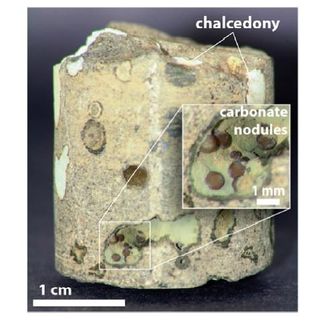Bayer to use CO2 commercially as a new raw material
Greenhouse gas for production of high-quality plastics
Advertisement
Following a successful test phase, Bayer is aiming to commercialize the use of the greenhouse gas carbon dioxide as a new raw material for plastics. The company has started the planning process for the construction of a production facility at its site in Dormagen, Germany, where CO2 will be used to produce a precursor for high-quality foam. The objective is to initially make larger quantities of this precursor available to selected processors from 2015.
The use of carbon dioxide benefits the environment. CO2 replaces a portion of the fossil raw materials, such as petroleum, that would otherwise be used exclusively. At the same time, Bayer expects the new process to provide economic advantages over the conventional production method.
Waste gas turning into profitable raw material
“CO2 is taking on a new light: The waste gas is turning into a useful and profitable raw material. That makes us one of the first companies worldwide to take an entirely different approach to the production of high-quality foams,” says Patrick Thomas, CEO of Bayer MaterialScience.
The materials manufacturer collaborated with partners from industry and academia to develop the process, which has been tested intensively over the last two years. As part of the publicly funded research project “Dream Production”, a pilot plant at Bayer’s main site in Leverkusen produced smaller quantities of the precursor polyol, in which the CO2 is chemically bound.
The substance is used for the production of polyurethane foam. This high-quality material can be found in many everyday items, including upholstered furniture, automotive parts, refrigeration equipment and insulation material for buildings. In internal tests, the new foams show at least the same high quality as conventional material based entirely on fossil fuels.
Mattresses made with CO2
“After successfully completing the test phase, we are now launching Stage 2 with the target of commercialization,” says Thomas. The first use of the new CO2-based flexible foam will be for the production of mattresses.
The planned production facility in Dormagen will have a capacity of several thousand metric tons. “This will not be enough to accommodate the market demand, of course. It is Bayer’s patent-registered technology and we have not yet decided to be the exclusive producer of this innovative polyol. Licensing might also be a possibility,” adds Thomas.
Most read news
Other news from the department business & finance

Get the chemical industry in your inbox
By submitting this form you agree that LUMITOS AG will send you the newsletter(s) selected above by email. Your data will not be passed on to third parties. Your data will be stored and processed in accordance with our data protection regulations. LUMITOS may contact you by email for the purpose of advertising or market and opinion surveys. You can revoke your consent at any time without giving reasons to LUMITOS AG, Ernst-Augustin-Str. 2, 12489 Berlin, Germany or by e-mail at revoke@lumitos.com with effect for the future. In addition, each email contains a link to unsubscribe from the corresponding newsletter.






























































